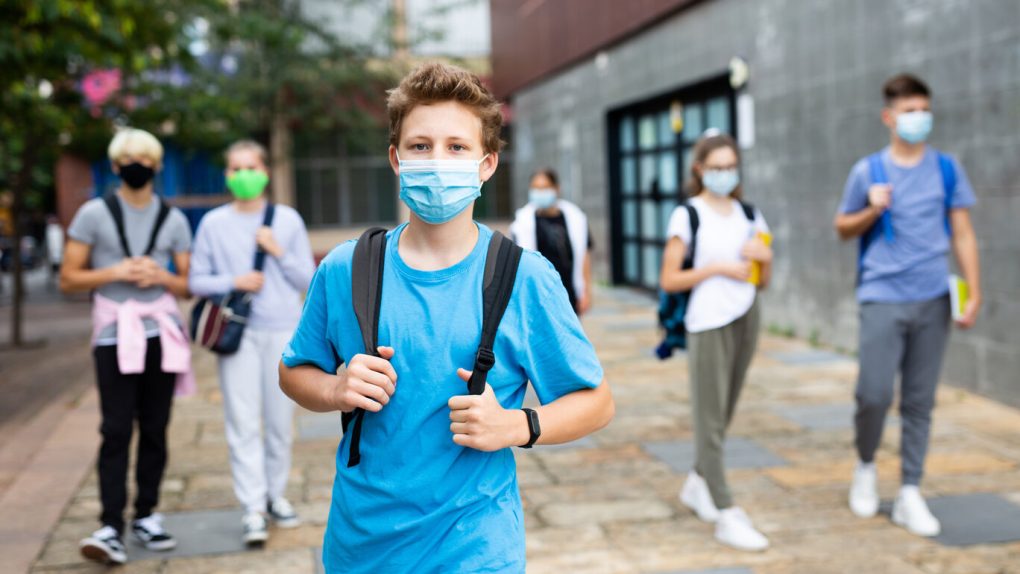- The coronavirus pandemic may ultimately increase the infection rate for the common cold and the flu, according to a new study highlighted by the CDC.
- The study found that upper respiratory tract infections in Hong Kong skyrocketed when students returned to school this past fall.
- Researchers speculate that these students were especially vulnerable to infection because their immune systems — on account of COVID safety measures — weren’t exposed to the viruses last year.
While word of the coronavirus in the US first emerged in early 2020, it wasn’t until March of 2020 that states started to appreciate the severity of COVID-19. Before long, dozens of states implemented strict lockdown measures that saw millions of people stuck at home, save for leisurely walks or trips to the grocery store. And while lockdown measures have loosened considerably in recent months — indoor dining, for example, is now permissible across much of the US — the reality is that a good percentage of Americans have spent the bulk of the last few months hiding away indoors and avoiding contact with strangers.
An unintended consequence of our collective coronavirus lifestyle — which one could appropriately categorize as a makeshift hibernation — is that our immune systems may now be less capable of combating the flu and the common cold.
To this point, the CDC recently highlighted a study published in the Emerging Infectious Diseases journal which details how Hong Kong saw a surge of upper respiratory tract infections (URTI) last October as students returned to school for the first time since January of 2020.
“In the last week of October 2020,” the study reads, “the Hong Kong Centre for Health Protection began receiving reports of URTI outbreaks in kindergartens, childcare centers, nursery schools, and primary schools. Outbreaks of URTIs in schools continued to increase rapidly in the following weeks.”
The study found that there were 81 large outbreaks of URTI and flu-like illnesses involving more than 20 people in October, a figure equal to the total number of large outbreaks Hong Kong saw from 2017 through 2019. Many schools that saw large outbreaks were forced to close back down.
Touching on a possible explanation for the surge of new illnesses, the study notes:
From cross-sectional surveys conducted in February and March 2020, we reported that 75% of school-aged children did not have contact with persons outside their own household when schools were dismissed. Indicators of respiratory virus activity, such as rates of consultation for influenza-like illnesses and detection of influenza viruses in respiratory specimens, remained extremely low throughout 2020.
However, population susceptibility to rhinoviruses and other respiratory viruses, including influenza viruses, might have been increasing over time because persons were likely less exposed to the viruses when intense social distancing measures, including school dismissals, were implemented in response to the COVID-19 pandemic. This would have increased transmission potential when schools resumed. In England in September 2020, ≈2 weeks after full reopening of schools following prolonged dismissals, a substantial increase in the detection of rhinoviruses among adults was recorded, possibly driven by transmission among children.
Interestingly, the incidence of the common cold shot up even though students and teachers, in the process of adhering to COVID-19 safety measures, made sure to wear masks and follow social distancing guidelines. The study notes that this could be due to the fact that face masks are effective at blocking coronavirus and flu particles, but not rhinoviruses.







